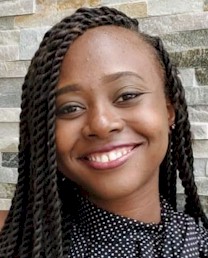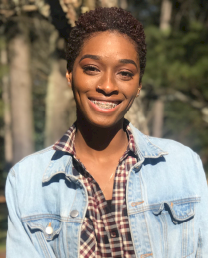By Shaye-Ann Hopkins and Shanta Ricks
Who are you? Who are those around you? Do you understand how you are similar to and different from them?
There are countless individual differences between people and groups. Groups have been defined and categorized based on multiple identities such as the nation you’re from, where in that nation you’re from, or your political orientation. These separations have evolved into partisanship across groups, highlighting the need to understand how we differ culturally and across groups and how we can begin to reduce the impact of these divides. As polarization becomes a more pressing issue, there is increased value in a) learning about cross-cultural models that explain differences across groups, and b) exploring how group-based theories can be applied to issues like political polarization. With these insights from models and applications, we can then shape solutions that reduce divides. If we can improve how we experience others, we can reduce division through awareness, understanding, and communication.
Cross-Cultural Model
One example of a cross-cultural model that provides insights into group-based differences is Lewis’ Model of behavioral dimensions. Lewis developed a framework in his 1996 book, When Cultures Collide, for grouping national and regional cultures by using his experiences from working in more than 20 countries and visiting 135 of them. The framework focuses on differences across groups in time perspectives, process orientation, and confrontational styles. Lewis concluded that people can be divided into three categories based on behavior: linear-active (e.g., task-oriented, highly organized planners), multi-active (e.g., people-oriented, more talkative ‘inter-relators’), and reactive culture (e.g., introverted, respect-oriented listeners). Lewis noted that evidence of these 3 categories extended beyond nations, applying to regions, races, and occupations.
An example Lewis provides is trust within cultural groups. Members of medium to high-trust societies like Germany and the U.S. usually trust others. They are usually linear-active and assume that their fellow citizens “follow the rules”, resulting in them trusting a person until they prove themselves untrustworthy. Trust is scientific and based on facts and figures. Multiactive cultures trust people who show compassion, accept closeness and protect their vulnerabilities. In highly reactive cultures such as Japan, China, and Korea, trust is gained through respectful behavior, “protecting the other’s face”, reciprocating favors, and extending predictable courtesies.
Significance and Applications
We know that groups and individuals are different, but theories like this clarify how these differences manifest across groups. These insights from cross-cultural work have inspired a range of research within various contexts that include cross-cultural negotiation and bargaining, learning and teaching, trust, personality traits, visual processing, and politics. Cross-group research shows the importance of understanding across and within cultures, and their applications across different groups in areas like politics (at both the individual and policy levels).
Divisions in Politics
Why is it important to consider and understand cross-group differences in areas like politics? We’re in an era of division that continues to grow over time. There have always been differences in beliefs across groups (e.g., views on immigration or taxes), but these differences have continued to evolve. The result? Highly polarized, or divided societies. “Us” versus “them” mindsets have evolved through political cleavages or internal divisions based on class ethnicity, or religion, that affect society. The riots, wars, and general democratic erosion across the polarized globe provide evidence of this.
Across nations, these cleavages differ based on political experiences and perceptions, but we continue to see common themes. Edelman’s Trust Barometer notably finds that worldwide, 6 in 10 people now state that it is their default to distrust until they are provided with evidence of trustworthiness. Turkey, for example, has been characterized as a lower trust and polarized country. We see similar trends in countries like Venezuela, Poland, and Hungary, where there’s evidence of democratic erosion and more highly concentrated power.
In the U.S., groups are more divided than ever, with out-group sentiments and more general trust continuing to decrease over time. The Hidden Tribes report concludes that “we have become a set of tribes, with different codes, values, and even facts. In our public debates, it seems that we no longer just disagree.” Another 64% say it has gotten to a point where people are incapable of having constructive and civil debates about issues they disagree on.
Polarization becomes even further perpetuated by echo chambers, or people primarily experiencing and interacting in bubbles and groups with similar thoughts. With media and technology systems feeding these divides, individuals continue to become polarized. The social networks to which people belong can “rewire” personal attitudes over time to reflect the opinions of the people they’re linked to.
Fixing the Divide
With this division, the question becomes: how can we become less polarized?
Across countries and groups, we see differences in how individuals show party support, vote, and trust in the government. These are due to innate differences in experiences and preferences across varying groups. Intuitively, it seems like pushing ourselves and others to understand these differences can help us to fit different pieces of the puzzle together. Moreover, it can help us to understand why this happens in some groups, and not in others, and why people have the beliefs that they have.
How to Depolarize Ourselves
This raises two solutions: 1) improving understanding and communication across divides, and further 2) exploring our shared, unique identities.
In order to communicate better, opportunities lie in us engaging with resources that foster constructive dialogue, connect people across divides, or allow us to understand how to bridge differences. Furthermore, as researchers and practitioners, insights like this help us to think more critically about how we can design interventions that are more culturally tailored. It also means doing more in-depth research on models (like the Lewis model) or others that apply to the work we’re doing.
Another way to reduce polarization may be through appeal to an overarching national identity. The Hidden Tribe report also notes that “Americans are going about their lives with absurdly inaccurate perceptions of each other”. Studies like Muzafer Sherif’s Robbers Cave experiment on conflict resolution showed that after creating conflict, superordinate goals (goals so large that it requires more than one group to achieve the goal) reduced conflict significantly more than other strategies. Work like this emphasizes the value of coming together for a larger purpose outside of our individual and in-group identities.
We’re different and that’s fine. Cross-group theories help us to understand and appreciate these differences. These differences extend into topics like political polarization, which has increased over time. However, there is value in us learning how to communicate better, and recognizing that we have shared identities with everyone around us. Knowledge of this can help us to connect more meaningfully with a wider range of people and break out of our own echo chambers. It’s important for everyone – whether it’s making friends or being a better researcher. Ultimately, depolarizing ourselves can help us to be better, less divided humans.
This article was edited by Shaye-Ann Hopkins.



